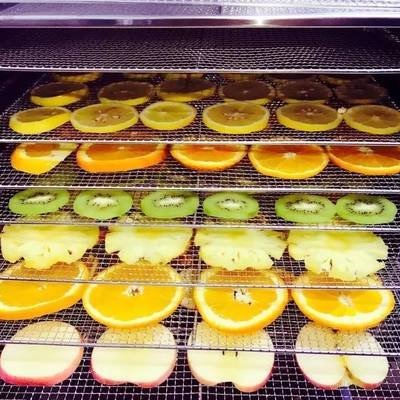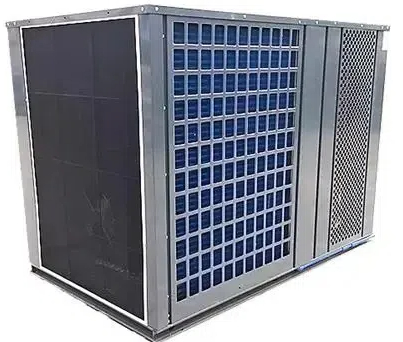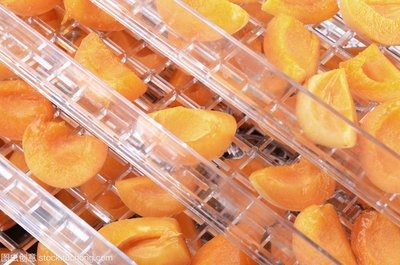
Content Menu
● Introduction
● Understanding Food Drying
● Types of Food Dryers
>> Conventional Dehydrators
>> Heat Pump Dryers
>> Solar Dehydrators
● Heat Pump Dryers: A Modern Solution
● Applications of Food Drying
>> Fruits
>> Vegetables
>> Herbs
● Choosing the Right Food Dryer
● Conclusion
● Frequently Asked Questions
>> 1. What are the benefits of using a heat pump dryer for food?
>> 2. How does food drying affect nutritional value?
>> 3. Can all types of food be dried?
>> 4. What is the average noise level of heat pump dryers?
>> 5. How do I maintain my food dryer for optimal performance?
Introduction
Food preservation has been a crucial aspect of human survival, allowing us to store food for longer periods and reduce waste. Among various methods, food drying stands out as one of the oldest and most effective techniques. In recent years, heat pump dryers have emerged as a modern solution, offering efficiency and versatility in food drying. This article explores the intricacies of food drying technology, focusing on heat pump dryers and their applications in preserving food.

Understanding Food Drying
Food drying is the process of removing moisture from food to inhibit the growth of microorganisms and enzymes that cause spoilage. Historically, methods such as sun drying and air drying were common, but advancements in technology have led to more efficient methods. Dehydrating food not only extends its shelf life but also concentrates flavors and nutrients, making it a popular choice for both home cooks and commercial food producers.
Types of Food Dryers
There are several types of food dryers available today, each with its unique advantages:
Conventional Dehydrators
These are electric appliances that use fans and heating elements to circulate warm air around food. They are relatively affordable and easy to use but may require more time to achieve desired results.
Heat Pump Dryers
Utilizing a heat pump system, these dryers are energy-efficient and can operate at lower temperatures, preserving more nutrients. They are particularly effective for large-scale food drying operations.
Solar Dehydrators
Harnessing the power of the sun, these dryers are eco-friendly and cost-effective, but their efficiency is highly dependent on weather conditions.
When comparing these technologies, heat pump dryers often stand out for their efficiency and ability to maintain consistent temperatures, which is crucial for effective food drying.

Heat Pump Dryers: A Modern Solution
Heat pump dryers work by transferring heat from the environment to the food, effectively removing moisture without excessive heat that can degrade quality. This method not only conserves energy but also allows for a more controlled drying process.
One of the significant advantages of heat pump dryers is their low noise levels, typically ranging from 40 to 60 decibels, comparable to a quiet conversation. This makes them suitable for both commercial and residential settings where noise can be a concern.
Applications of Food Drying
Food drying has a wide range of applications, from preserving fruits and vegetables to creating snacks like jerky and fruit leathers. The versatility of heat pump dryers makes them ideal for various food types, including:
Fruits
Apples, bananas, and berries can be dried to create healthy snacks.
Vegetables
Carrots, tomatoes, and peppers retain their flavors and nutrients when dried.
Herbs
Drying herbs extends their shelf life and enhances their flavors.
In industrial settings, heat pump dryers are increasingly used for large-scale food production, allowing businesses to meet consumer demand for dried products efficiently.
Choosing the Right Food Dryer
When selecting a food dryer, consider factors such as capacity, energy efficiency, and ease of use. Popular brands like Magic Mill and COSORI offer a range of models that cater to different needs, from home users to commercial operations.
Maintenance is crucial for ensuring the longevity of your food dryer. Regular cleaning and proper storage can prevent issues and enhance performance.
Conclusion
Food drying technology has evolved significantly, with heat pump dryers leading the way in efficiency and effectiveness. As consumers become more health-conscious and environmentally aware, the demand for high-quality dried foods will continue to grow. By understanding the benefits and applications of food drying, individuals and businesses can make informed decisions that enhance food preservation and reduce waste.

Frequently Asked Questions
1. What are the benefits of using a heat pump dryer for food?
Heat pump dryers are energy-efficient, preserve nutrients better, and operate at lower noise levels compared to traditional dryers.
2. How does food drying affect nutritional value?
Drying can concentrate certain nutrients, but excessive heat can degrade some vitamins. Heat pump dryers minimize this risk by using lower temperatures.
3. Can all types of food be dried?
Most fruits, vegetables, and herbs can be dried, but some foods with high-fat content, like avocados, may not dry well.
4. What is the average noise level of heat pump dryers?
Heat pump dryers typically operate at noise levels between 40 to 60 decibels, making them relatively quiet.
5. How do I maintain my food dryer for optimal performance?
Regular cleaning, checking for blockages, and following the manufacturer's guidelines will help maintain your food dryer’s performance.












